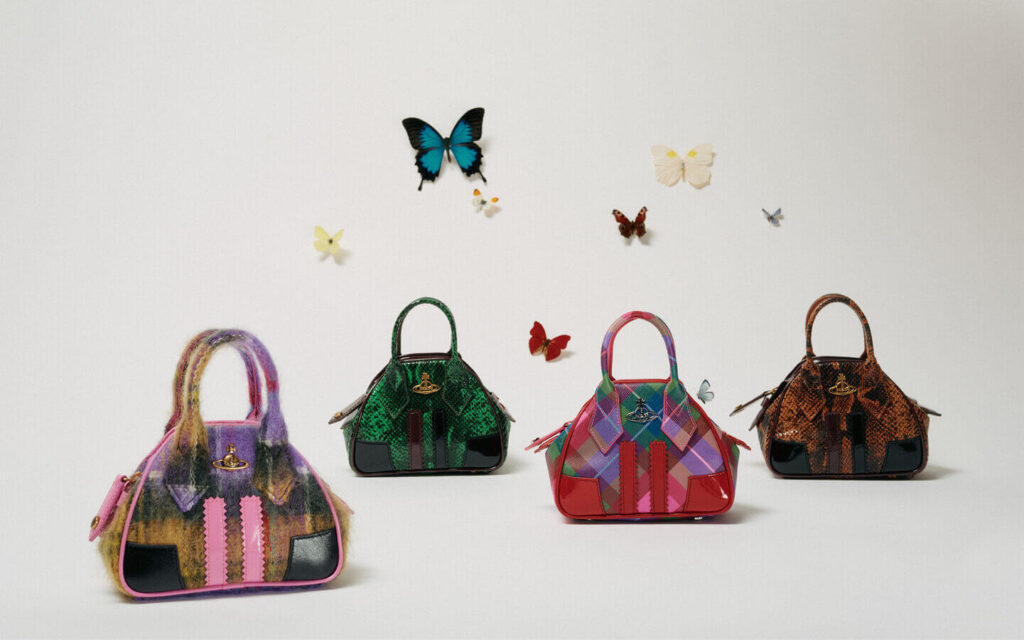Oct. 4—Alex Achoundong’s boutique, Majoli, sits adjacent to a Macy’s in the Shoppes at Buckland Hills in Manchester, waiting to lure shoppers who saunter from the department store, attracted by Majoli’s ornate display of women’s clothing.
“Many people that come here tend to go to Macy’s, and they stop by because Macy’s doesn’t have what I have,” Achoundong said. “I don’t have to do a lot of advertisements.”
Like this story? If you’re not a subscriber consider signing up for more great local news. Just click here.
It’s a familiar setup for Achoundong, whose shop used to be situated near Macy’s in the Brass City Mall in Waterbury. But after the department store bolted, dwindling foot traffic forced Achoundong to relocate Majoli to the Buckland Hills mall four months ago.
“If Macy’s isn’t there, (shoppers) are not even going to bother (coming to the mall),” Achoundong said.
The closing of department stores has plagued shopping malls across America, with leftover tenants seeing less business and struggling to keep up with high rents. One of Buckland Hills’ anchor stores, Sears, closed early this year, and another anchor, Dick’s Sporting Goods, plans to relocate to the nearby Plaza at Burr Corners in November.
Dick’s move illustrates a trend accelerated by the COVID-19 pandemic: outdoor shopping centers are outperforming enclosed ones.
As many retailers battle distressed balance sheets and competition from online shopping, Adam Winstanley, whose company, Winstanley Enterprises, owns the Plaza at Burr Corners, said his outdoor shopping center is flourishing. Winstanley said he’s noticed a significant uptick in leasing activity at the Plaza, and he’s had to turn tenants away because it is 95% full.
Winstanley also owns commercial property in Fort Myers, Florida. And at both properties, he said, tenants are “jumping ship from the malls,” especially bigger businesses, putting stress on mall owners to fill those vacancies.
“We’re getting a lot of tenants that are leaving malls, and they want to get into the open-air format, and we’ve been a direct beneficiary of that trend in two different states,” Winstanley said.
Shoppers’ reluctance to roam in a crowded indoor environment during the COVID-19 era has accelerated the decline of regional shopping malls and been a key driver in the shift to outdoor shopping.
“People have shied away from (being indoors), and it’s kind of a rebirth for the open-air shopping center,” Winstanley said.
In addition to decreased foot traffic, mall retailers are also burdened with expensive rent. Winstanley said the shops at the Plaza at Burr Corners cost about $20 per square foot, plus utilities. At indoor shopping malls, a tenant might pay around $40 per square foot, which is due to the increased operating expenses associated with being in a mall, Winstanley said.
“That’s another reason why mall tenants are calling us up and saying, ‘hey can we come to your property,'” Winstanley said.
Tenants consider leaving
The grim situation surrounding malls has caused some tenants to consider leaving. Natalia Rodriguez, who is a manager at Rainbow in the Shoppes at Buckland Hills, said the women’s clothing store has struggled to hit its goals in recent months, and conversations within the company’s management are being had to determine the best course of action going forward.
“Right now, at the moment, higher up they are having that conversation considering if it makes sense to stay here or leave,” Rodriguez said.
Kerenyamil Rodriguez, 34, rents a kiosk a few paces from Rainbow’s entrance, where she sells women’s clothing and accessories. Rodriguez called Rainbow one of the most popular stores in the Shoppes at Buckland Hills, along with Forever 21 and Windsor Fashion. If any of those stores leave, she said, her business would suffer the residual effects.
Frank Bond moved his business, Stateline Video Games, into Enfield Square two years ago. Located diagonally from Target, Bond said he sees the flow of traffic from Target “all day long,” but added that he’s seen the most business from shoppers exiting the movie theatre and coming into his store at odd times during the day.
Bond who opened a store in the Holyoke Mall this year, said he “never really considered” opening in an outdoor shopping center, but would be open to the possibility in the future. Bond called Enfield Square a “tough location” because of its lack of business, and said the Shoppes at Buckland Hills recently approached him about opening a store. But he has concerns.
“You look at the outside of (the Shoppes at Buckland Hills, same as (Enfield Square), it’s rocking at all times,” Bond said. “But when it comes to inside the mall, it just doesn’t seem to mirror that.”
Shoppers like malls
Despite the downturn, some shoppers still enjoy the experience of going to indoor malls. Vernon resident Yaritza Flores, 20, and her daughter bopped a balloon around the first floor of the Shoppes at Buckland Hills one Monday afternoon. Flores said she prefers doing her shopping at the Shoppes at Buckland Hills because the variety of stores allows her to shop for both her and her children.
Enfield resident Aiden Cauley, 22, said he generally prefers going to outdoor shopping centers, especially with optimal weather. But Cauley said he also delights in the diversity of indoor shopping malls, and gets more satisfaction out of shopping at a mall compared with sitting at home and ordering goods online.
With Connecticut’s vaccination rate steadily climbing, Rodriguez said she hopes to avoid a repeat of last winter, when cold weather and the threat of COVID-19 kept shoppers home.
Megan Wintersteen, who is the vice president of a technology company called Zenreach, said customer foot traffic to brick-and-mortar businesses in Connecticut is currently up 46% from the beginning of the year, but has also seen a 12% decline over the past two months. Wintersteen said she expects foot traffic numbers to remain conservative throughout the winter.
“I definitely think there’s a level of caution and, dare I say, a type of PTSD from consumers around what happened last year,” Wintersteen said.
As he tries to keep up with surging interest in his outdoor properties, Winstanley said he expects the trend of shoppers choosing outdoor shopping centers to continue, and called it “tough straits for malls going forward.”
Like many retailers, Rodriguez had to persevere to keep her business open during last year’s shutdown, and also runs an online store to supplement her income. Despite her optimism for the future, Rodriguez knows that her business’ success hinges on the changing retail landscape.
“If I don’t have traffic, how can I sell?” Rodriguez said.
Austin Mirmina is the Journal Inquirer’s business reporter and also covers the town of Windsor.





More Stories
Victims, gunman, and ‘good Samaritan’ who ended massacre ID’d in Indiana mall shooting
Armed citizen at Greenwood mall hailed as hero who saved lives – WISH-TV | Indianapolis News | Indiana Weather
Indiana mall shooting: Live updates